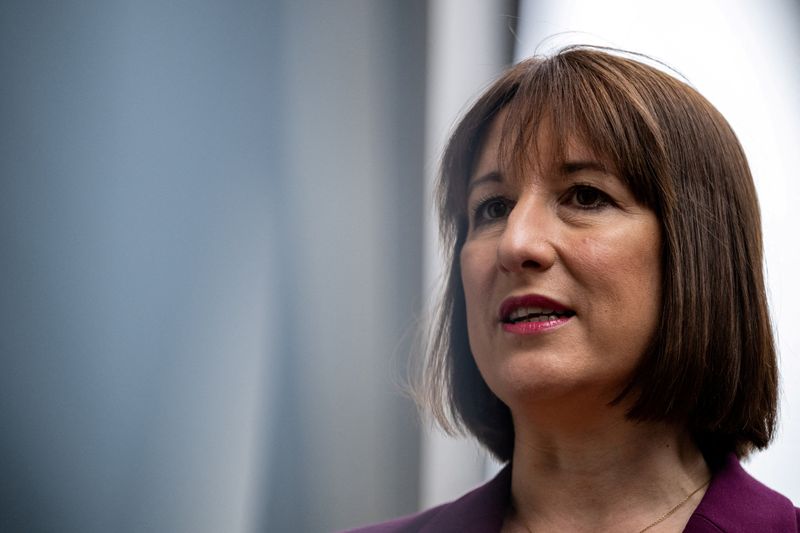Nvidia set to lose $180 billion in market value today as Meta weighs Google chips
Investing.com - U.K. finance minister Rachel Reeves faces a knotty messaging dilemma as she approaches the unveiling of her Autumn Budget on November 26.
Reeves has reportedly been grappling with various strategies aimed at raising tens of billions of pounds needed to meet her fiscal targets, but her own rules have left her having to potentially slash spending, raise some taxes, or even both.
Lifting income taxes, in particular, would represent breaking a pledge from Prime Minister Keir Starmer’s Labour government.
Earlier this month, Reeves noted in a speech that "we will all have to contribute." It was a statement interpreted by some observers to mean that the government would increase the main rate of income tax for the first time since the 1970s.
However, media reports have suggested that Reeves now has no plan to do so, with a source quoted by Reuters citing improved fiscal forecasts from the Office for Budget Responsibility, or OBR. The apparent policy reversal sent government borrowing costs spiking on Friday.
Investors, businesses and think tanks cited by Reuters later suggested that the shift in tone pointed to a confusing policy stance taken by Reeves and the government.
In a note to clients, analysts at UBS said they "firmly expect" to see Reeves roll out "a package of tax hikes and spending cuts" worth perhaps 25 billion pounds to 30 billion pounds, equating to 0.9%-1% of gross domestic product.
"It appears that amid better-than-expected revisions by the OBR, raising revenues close to the expected range could be one through a range of smaller tax increases, which would not require the government to break the pre-election commitments around income tax," the analysts including Anna Titareva and Giles Gale said.
They predicted that the tax measures will "dominate the policy announcements next week," while the spending cuts will likely be "back-loaded with relatively little detail regarding specific departments" impacted by the reductions.
At the same time, a restriction on the child tax credit and universal credit to the first two children will be eased as well, they added, saying this could raise government expenditures by 3.6 billion pounds.
Get more stock picks by Wall Street analysts by upgrading to InvestingPro - get 55% off today
